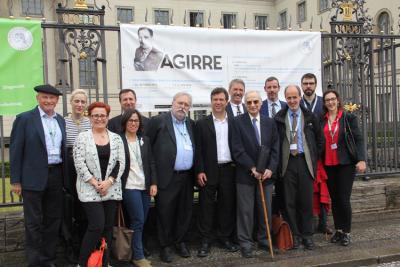Berlin, Germany. The memory of Jose Antonio Agirre returned last Wednesday to the streets of Berlin where Agirre had been in 1941, hiding from the Nazis under a false identity of a Panamanian, Jose Alvarez Lastra. The conference, “Agirre in Berlin” recovered the fictional experience of Agirre, using it as a starting point to deepen the study and dissemination of this political figure and his legacy.
The conference began on Wednesday, with a talk by historian Iñaki Goiogana about the contribution of the Basques in the creation of Europe. On Thursday, “The International Legacy of Lehendakari Agirre's Government” conference took placed at Humboldt University co-organized by the Etxepare Institute, the University of Leipzig and the Center for Basque Studies in Reno.
Beyond the Myth
“The goal of this conference was to present research conducted in 2016 on the figure of Agirre to get to discover the relevance of his thinking,” Mari Jose Olaziregi of the Etxepare Basque Institute told EuskalKultura.com. “We wanted to analyze Agirre beyond the myth.”
In this regard, various presenters talked about the European connection with Agirre, in relation to the Basque Government in exile with the Vatican, the flight of Agirre through Europe, the repression that supporters of Agirre’s government suffered in Euskadi, or the genocide in Euskadi after the civil war. “This conference had very solid content like that of Xabier Irujo who uses the concept of genocide to analyze the repression in Euskadi,” Olaziregi said.
Art and Politics
The conference concluded on Friday with the celebration of “Agirre in the Arts,” organized by the Euskal Etxea where artists and researchers analyzed the impact of the civil war and exile on Basque creators. The influence of the war on designers such as Balenciaga and Paco Rabanne, and the use of art in politics with the Bombing of Gernika, in Basque literature about the civil war….were some of the aspects analyzed.
In addition, the writer Kirmen Uribe presented a preview of his upcoming novel that follows the life of an exceptional woman in this turbulent years.
“The conference attracted an audience and received a lot of coverage in both Basque and German media,” Unai Lauzirika member of the Berlin Euskal Etxea said. “Additionally, activities like the music and poetry recital by Kirmen Uribe and Mikel Urdangarin at the Gorki Theater were also full,” he added.
Maps and Publications
The work that was done will also stay online with a map of the streets in Berlin that Agirre traveled created by the Euskal Etxea, and translations into German of Agirre’s diaries that can be seen in the website Agirre in Berlín.
The University of Reno will also publish the proceedings of the conference The International Legacy of Lehendakari Agirre's Government in Reno, Berlin and New York. “Etxepare has also met one of its goals, to support scientific and academic research on Basque topics,” Mari Jose Olaziregi added.
“They were two complementary programs that came together very well,” Olaziregi said as she prepares to leave for New York where the third and last segment of the conference, “The International Legacy of Lehendakari Agirre's Government,” will take place, this time organized by the Agirre Lehendakaria Center (ALC), Colombia University, where Agirre taught during his exile in New York.
Program of the last session available on our Agenda.




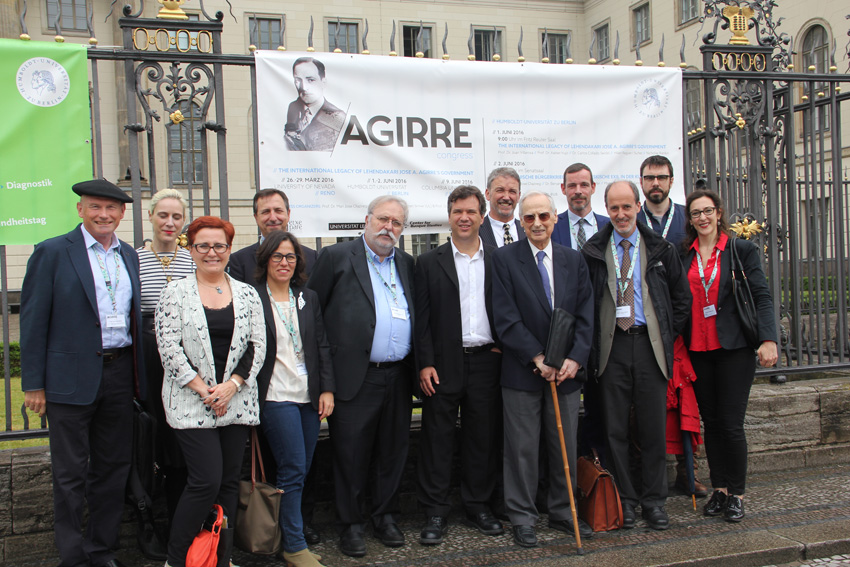



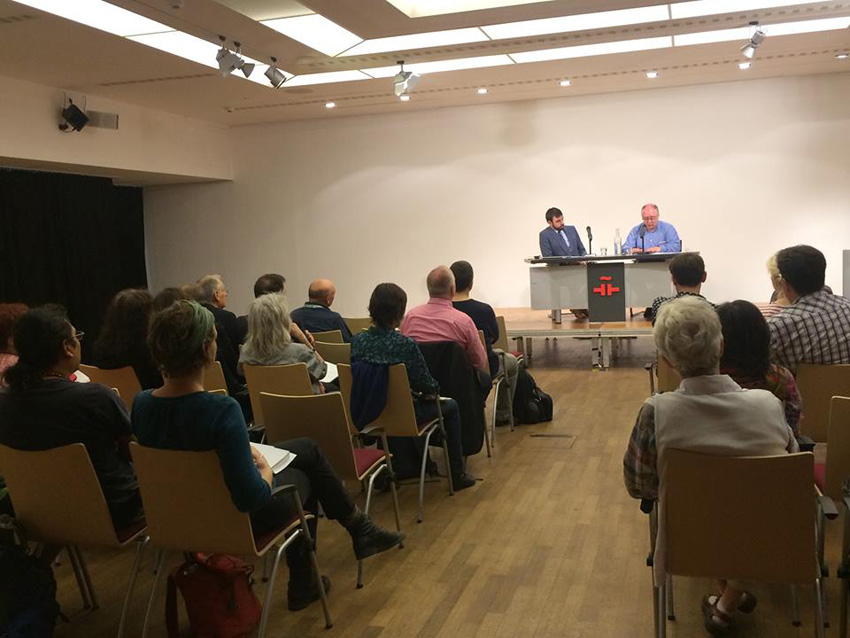
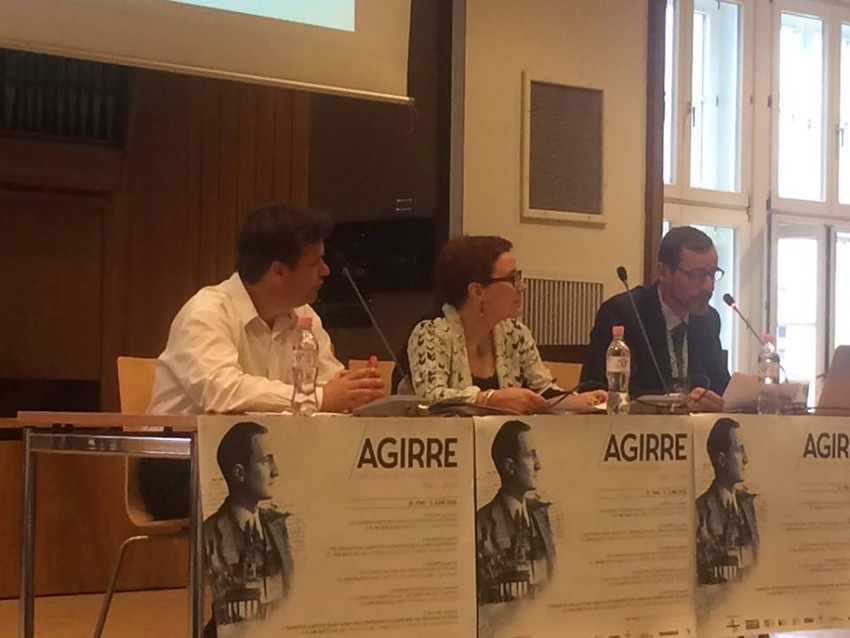
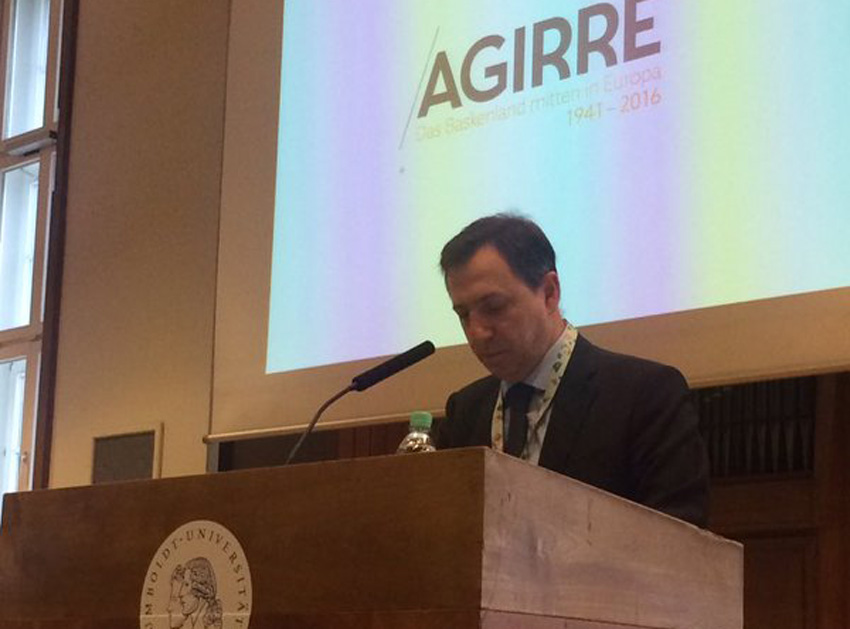
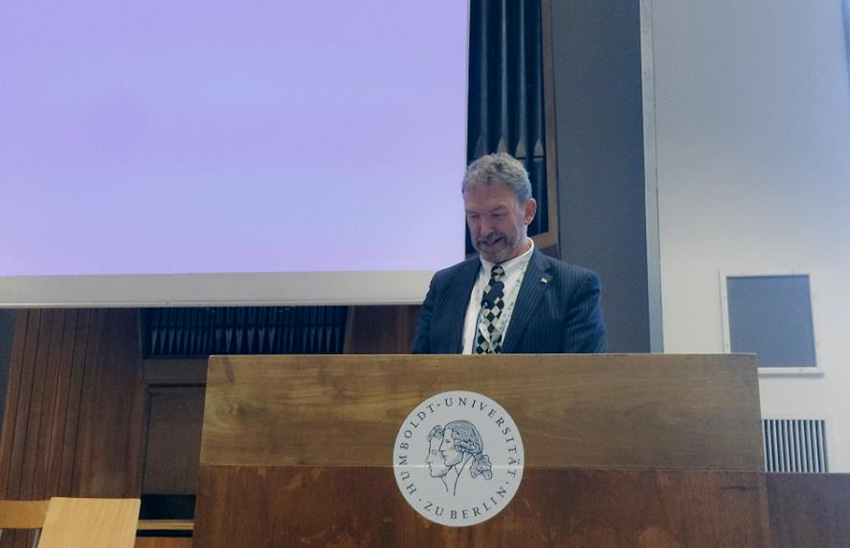
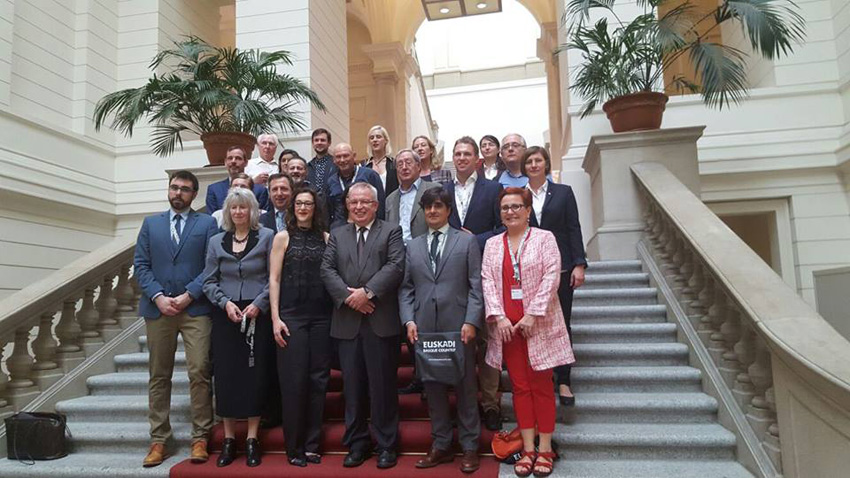
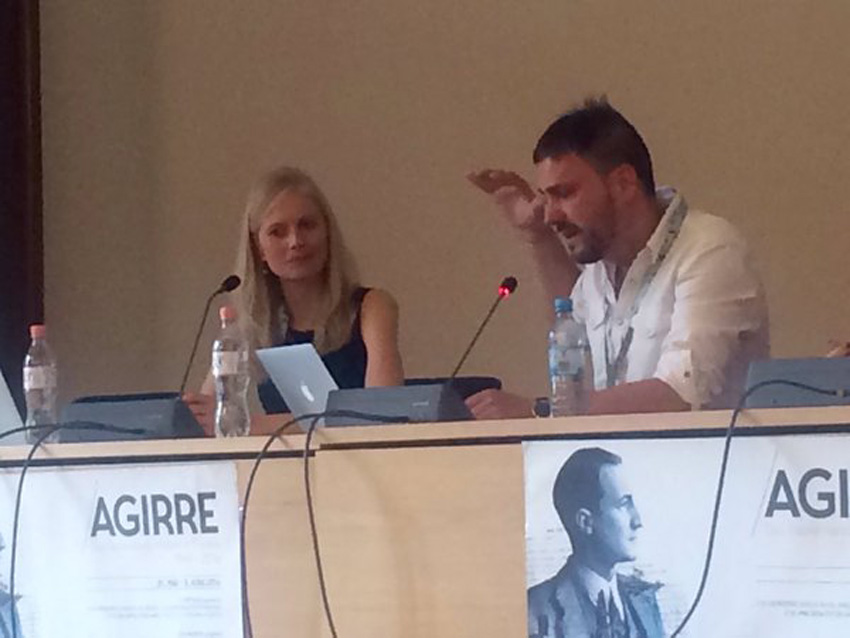
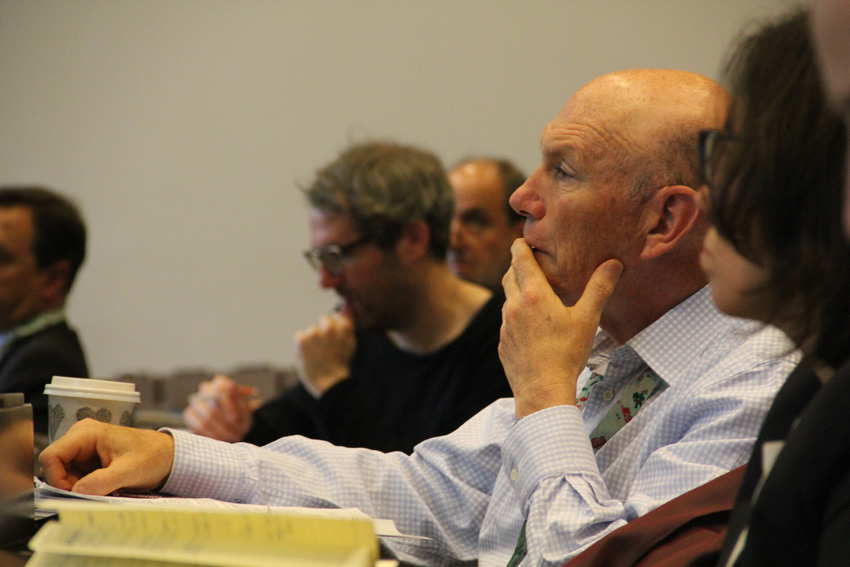
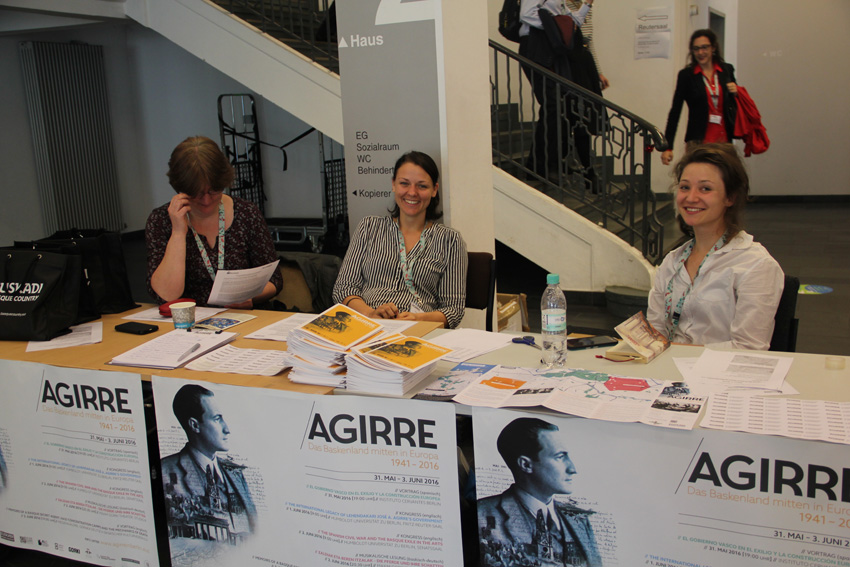
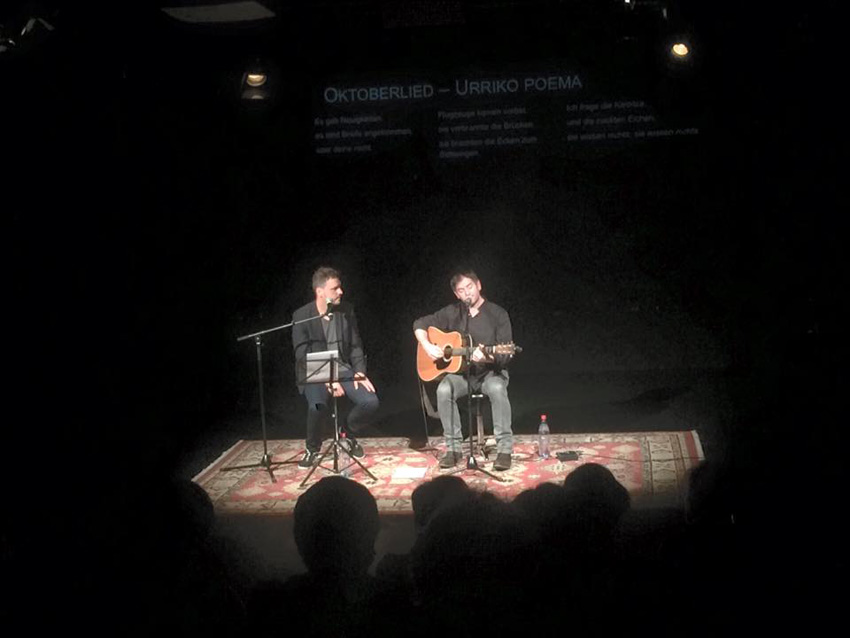
 Send to a friend
Send to a friend Add comment
Add comment

